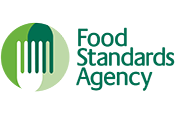Starting and running a food business
Comply with food safety regulations
Food safety legislation exists to protect the public from unsafe food. To comply with food hygiene and standards, you must have the relevant food safety management procedures in place. You must also consider the suppliers you use, the traceability of your food, and how you transport it.
Food safety management procedures
All catering and retail food business operators must have in place food safety management procedures based on the Hazard Analysis and Critical Control Point (HACCP) principles.
HACCP is an internationally recognised system of food safety management that helps you:
- identify potential food safety problems - or 'hazards' - in your business
- introduce procedures to remove the hazards, or reduce them to an acceptable level
These procedures can help you produce and sell food that is safe to eat, providing that you:
- keep up-to-date documentation and records relating to your procedures
- review procedures regularly to ensure they reflect what you produce or how you work
FSA guidance on food safety management
To help you put your food safety management procedures in place, the Food Standards Agency (FSA) provides food safety management guides for small businesses, including:
- safe catering - for caterers and retailers in Northern Ireland
- safer food, better business - for restaurants, cafés, takeaways and other small catering businesses
These guides will not only help you comply with food hygiene regulations, but will also help you understand how to:
- make food safely
- train staff
- keep records to show that your food safety procedures are effective
- protect your business' reputation
- improve your business' efficiency - eg by wasting less food
There are other FSA guides that can help you comply with food hygiene legislation and give advice on good practice. For example:
- E.coli cross-contamination guidance - it focuses on E. coli but the steps taken to avoid cross-contamination will also help control other harmful bacteria
- Food safety for food delivery guidance - it provides hygiene and allergy advice specifically for takeaways and food delivery businesses
- Food handlers fitness to work guidance - it gives advice on preventing the spread of infection by clarifying what illnesses and symptoms staff should report and what managers should do in response
Your local council environmental health service can also advise you on the relevant food safety management procedures. Find your local council in Northern Ireland.
Food hygiene
Anyone who handles food must ensure that their practices minimise the risk of harm to the consumer. Part of complying with food safety is managing:
- food hygiene, including requirements on cleaning, cooking, chilling food and cross-contamination
- food standards, ie legal standards for labelling and composition of food products
You must also meet the legal requirements for food packaging and labelling.
Food allergens and additives
To keep your customers safe, you must follow the allergen information rules which require you to:
- provide accurate allergen information
- handle and manage allergens properly in the food preparation area
Find out more about food allergies, food intolerances and labelling.
Additional rules apply if you use food additives.
Traceability and withdrawal of food
Traceability rules help keep track of food in the supply chain. To meet the traceability requirement, you must keep records of:
- all the suppliers that provide you with any food or ingredients
- all the businesses that you supply with food products or ingredients
The records will help enforcement officers if there is a problem with food safety that means food may have to be withdrawn or recalled. Records should include:
- the name and address of supplier (or the business you are supplying)
- the nature and quantity of products
- the date of the transaction or delivery
You can also record batch number, invoices or receipts of food products purchased.
You must keep these records up-to-date and available for inspections at all times. They will be checked if there is a safety problem with food you have sold.
You need to withdraw from sale food which is unsafe. You must let the environmental health department of your local council and the FSA know if you have supplied unsafe food to customers. Read guidance on food incidents, product withdrawals and recalls.
Food safety inspections and enforcement
In Northern Ireland, local councils are responsible for enforcing food hygiene laws. Authorised officers have the right to:
- enter and inspect your premises at any reasonable time without making an appointment
- take enforcement action to protect the public, such as seizing foods suspected to be unfit for human consumption
- Food Standards Agency Northern Ireland028 9041 7700
